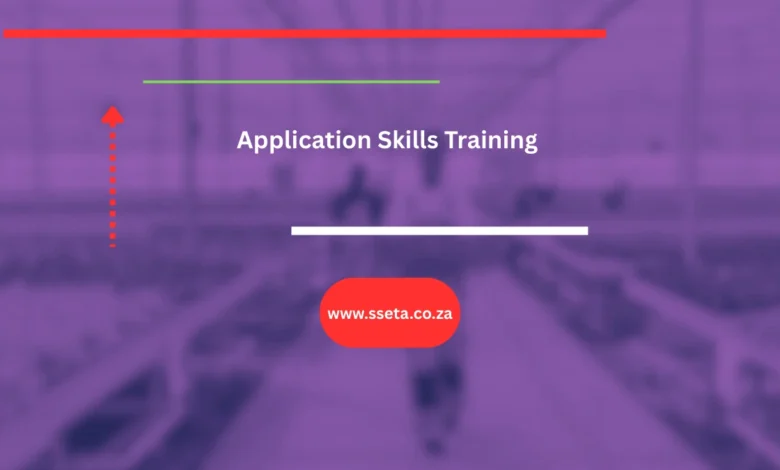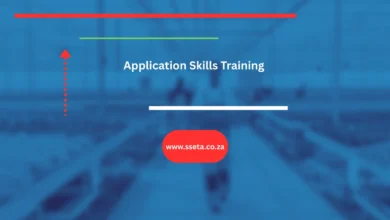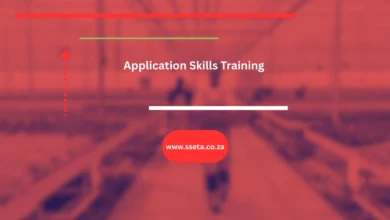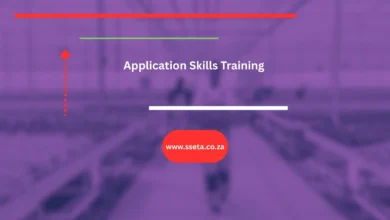From Classroom to Command: Inside the Transport Officer Skills Programme Offering Young South Africans a Path to Stability

In today’s South Africa, where youth unemployment remains a heavy shadow over countless households, opportunities that combine learning with earning are more than just career breaks — they are lifelines. For many young people, completing school is only the first step, and the search for direction can feel daunting.
One programme currently opening doors is the Transport Officer Skills Programme, offering not only training but also a monthly allowance of R5,640 for learners. Designed for young South Africans eager to enter the field of transport and logistics, this 12-month programme is more than just a qualification — it’s a structured pathway into one of the country’s most vital industries.
With applications closing on 5 September 2025, the programme is drawing attention for its promise of skills development, workplace readiness, and the chance to earn while learning.
The Human Side of Opportunity
For 21-year-old Nomfundo, completing Grade 12 was a proud achievement, but reality quickly set in. “I thought passing matric meant opportunities would open,” she explains, “but the truth is, without money for further studies or work experience, I couldn’t get anywhere.”
Stories like Nomfundo’s are familiar across South Africa. According to Statistics SA, youth unemployment remains stubbornly high, with millions of young people neither studying nor employed. The Transport Officer Skills Programme seeks to intervene in exactly this gap — giving school leavers structured, paid learning in a sector that keeps South Africa moving.
Why the Transport Sector Matters
Transport is the engine of South Africa’s economy. From buses that take commuters to work, to logistics networks that deliver goods across the country, the system relies on skilled professionals who ensure safety, efficiency, and reliability.
A Transport Officer plays a vital role in this ecosystem. They oversee schedules, manage shifts, monitor operations, and ensure that transport systems comply with regulations. In many ways, they are the unseen coordinators who make sure that people and goods reach their destinations safely.
Training programmes like this not only prepare participants for these responsibilities but also expose them to a growing industry where career advancement is possible.
What the Programme Offers
The Transport Officer Skills Programme is structured over 12 months, blending classroom learning with practical workplace exposure. Participants receive:
- Monthly allowance of R5,640 to support them during training.
- Skills training designed to equip learners with transport management knowledge.
- Work-readiness development, including communication and teamwork.
- Mentorship from experienced professionals in the sector.
Unlike short-term opportunities, this programme offers a year of consistent development, ensuring participants graduate with both confidence and competence.
Who Can Apply: Meeting the Requirements
The programme is designed for South Africans who are serious about building a future in the transport sector. To qualify, applicants must:
- Hold a Grade 12 (matric) certificate
- Be a South African citizen
- Have no visible tattoos (a requirement linked to uniformed presentation and discipline standards)
- Be willing to work shifts, including evenings and weekends
These requirements highlight the importance of discipline and flexibility in transport operations. Applicants should be prepared for real-world challenges, such as non-traditional working hours.
The Journey: What Training Looks Like
While every learner’s journey is unique, the general structure of the programme includes:
- Classroom Learning – covering the fundamentals of transport management, safety regulations, and administration.
- On-the-Job Training – placements in transport hubs, depots, or administrative offices where theory is applied.
- Shift Work Exposure – practical training that mirrors real-life operational demands.
- Mentorship & Evaluation – guidance from supervisors, with continuous feedback and assessment.
The goal is simple: to ensure that at the end of the 12 months, learners are not just “trained” but work-ready Transport Officers.
Successful campaigners will admit both classroom- grounded training and hands- on plant experience within the Limpopo Department of Transport.
Duration: 12 months
Pay-check: R 67,675.56 per annum ( earn while you learn)
Qualification: Traffic Officer Certificate upon completion
Placement: various sections across Limpopo
Available Placements by District:
- Capricorn District – 31 posts ( Ref No. LDTCS L1/ 2025)
- Mopani District – 32 posts( Ref No. LDTCS L2/ 2025)
- Sekhukhune District – 33 posts( Ref No. LDTCS L3/ 2025)
- Vhembe District – 31 posts( Ref No. LDTCS L4/ 2025)
- Waterberg District – 27 posts( Ref No. LDTCS L5/ 2025)
Entry Conditions:
Aspirants must:
- Have a Grade 12 instrument or original qualification.
- Be 18 – 35 years old.
- Hold a valid code B driving licence( primer).
- Be a South African citizen with a valid ID.
- Be medically fit( must give a medical instrument attesting capability to do emphatic training).
- Have no felonious record and not be declared unfit to carry an arm.
- Have no visible tattoos that discord with professional conduct.
- Be willing to work shifts, including weekends and public leaves.
Note aspirants will suffer driving and faculty tests as part of the selection process.
Why Apply for the Limpopo Traffic Officer Learnership?
This learnership is a career helipad for those passionate about law enforcement, road safety, and public service.
You will?
- Gain precious law enforcement chops and real- world business operation experience.
- Earn a nationally recognised Traffic Officer qualification.
- Get paid while training.
- Contribute to safer roads and communities in Limpopo.
How to Apply:
Step 1 – Online operation Submit your operation via the e-Recruitment system
You’ll need Completed Z83 form available online.
- Streamlined CV.
- Certified clones of your qualifications, ID and Driver’s licence.
- Original medical instrument attesting physical fitness.
Step 2 – Submission to Applicable District
You can also hand- deliver or post your completed Z83 form and documents to the applicable quarter office:
- Capricorn District
39 Church Street, Polokwane
Private Bag X 9324,
Polokwane, 0700 – Tel 0870863845
- Vhembe District
Thohoyandou Govi Complex
Private Bag X 2145,
Sibasa, 0970 – Tel 0159603000
- Sekhukhune District
Lebowakgomo Govt Complex
Private Bag X 61,
Lebowakgomo, 0737 – Tel 0156335150
- Waterberg District
NTK Building, Cnr Thabo Mbeki & River Street
Private Bag X 1038, Nylstroom, 0510 – Tel 0147013448
- Mopani District
Giyani Govi Complex Private Bag X 9679,
Giyani, 0826 – Tel 0158117000
Important Dates:
- Due Date: 05 September 2025 Contract
- Duration: 12 months
Allowance: More Than Just a Stipend
For many young South Africans, the monthly R5,640 allowance is a game-changer. It’s not a salary, but it provides stability — the ability to travel to training, cover basic expenses, and support families while focusing on skills development.
“Without the allowance, I wouldn’t even afford transport to attend training,” says Kabelo, a past participant in a similar programme. “It gave me dignity and made me take the opportunity seriously.”
This blend of financial support with education is what makes skills programmes like this so impactful — they remove barriers that often keep youth out of training opportunities.
Why the Tattoo Requirement?
The “no visible tattoos” requirement often sparks debate. For this programme, the reasoning lies in the standards of discipline and presentation expected from officers in uniformed environments. Visible tattoos can sometimes be seen as unprofessional in certain operational contexts.
While the requirement may exclude some, it emphasizes the importance of discipline, uniformity, and professional image in the transport sector.
The Bigger Picture: Skills Programmes as a National Solution
South Africa’s National Development Plan has long emphasized the need for skills programmes to combat unemployment. Unlike traditional university education, skills programmes are shorter, more practical, and directly linked to industries where demand exists.
The Transport Officer Skills Programme fits neatly into this vision. By focusing on employable skills, it ensures that learners are not just qualified on paper but capable of delivering results in the workplace.
Success Stories: Where This Training Can Lead
Graduates of transport-related training often move into:
- Transport Officer roles in municipal or private sectors
- Logistics coordinators in freight and supply chain companies
- Operations assistants in bus, rail, or taxi associations
- Supervisory positions after gaining additional experience
Career growth is possible, and the foundation laid during this programme makes graduates attractive to employers in a sector where reliability is paramount.
Deadline Approaching: Why Early Applications Matter
With the closing date set for 5 September 2025, applicants are encouraged to prepare their documents early. Programmes of this nature often attract high volumes of interest, and incomplete or late applications can mean missed opportunities.
Application Tips: How to Stand Out
- Prepare a professional CV that highlights your matric achievements, extracurricular activities, and any volunteer work.
- Demonstrate reliability in your application — employers want to know you can handle shift work.
- Show discipline — whether through past achievements, sports involvement, or leadership roles.
- Submit early to avoid missing the deadline.
A Step Toward Stability
For many applicants, this programme is not just about training — it’s about dignity, stability, and the chance to break into the workforce. South Africa’s job market can be unforgiving, but opportunities like this prove that with the right preparation and commitment, young people can find pathways forward.
As Nomfundo puts it, “When you’re young and unemployed, you feel invisible. A programme like this says, ‘We see you, and we believe in your future.’ That changes everything.”
Final Word: A Call to Action
The Transport Officer Skills Programme is more than an internship; it’s a structured bridge into the working world. By combining classroom knowledge, practical training, and a living allowance, it equips young South Africans with the tools to not only survive but thrive in a critical industry.
With the 5 September 2025 deadline fast approaching, the message is clear: opportunities like this should not be missed.
Programme Snapshot
- Title: Transport Officer Skills Programme
- Allowance: R5,640 per month
- Duration: 12 months
- Requirements: Grade 12, South African citizen, no visible tattoos, willingness to work shifts
- Closing Date: 5 September 2025



